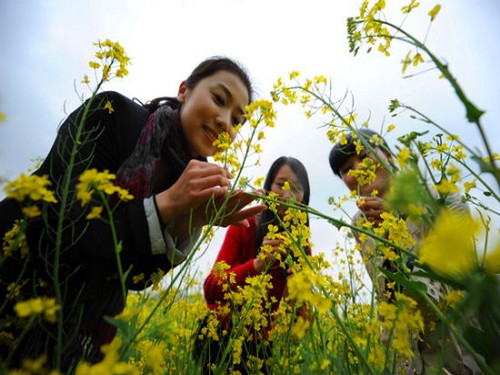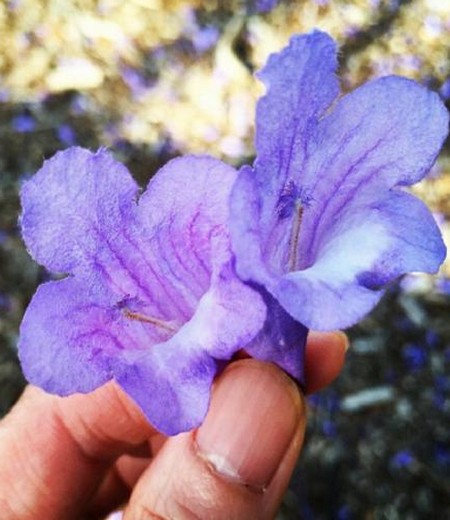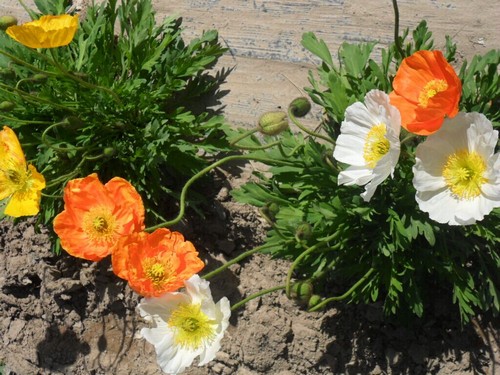Rape cauliflower planting technique
Rapeseed flower origin in Europe and Central Asia, botany belongs to an annual herb, cruciferous. It is cultivated widely in China, most of which are in the Yangtze River Basin and south of China. Flowers that bloom from winter to spring. Any of several congeners of sorrel. Bright color, with fragrance. Rapeseed has good ecological effect and adds a new summer cover crop to Yili area. It blooms in the middle of July in Yili area, and its flowering period is more than 20 days.

[Variety Selection]
Beijing City Agricultural Technology Extension Station introduced dry winter rape, mainly: Tianyou 5 and Tianyou 6; other varieties available for selection: Tianyou 8, Longyou 6 and 9.
The purchased seeds are plump and pure, with purity above 95%, purity above 99%, and germination rate above 85%.
[Sowing time]
- The suitable sowing time of spring rape in Zhaosu County of Yili Prefecture is April 25-May 15.
[Planting method]
1. Preparation before sowing
Rapeseed adaptability is strong, the soil requirements are not strict, but the soil layer is thicker, fertile loose soil is appropriate. Rapeseed seeds are small and the soil strength at the top of the bud is weak. Fine soil preparation is required to produce good seedlings.
500- 1000kg farm manure, 8- 10kg urea, 20- 25kg calcium phosphate, 5- 7kg potassium fertilizer, or 20- 30kg rape fertilizer and 1- 1.5kg borax are applied to each mu of base fertilizer, and mixed as furrow fertilizer.
7-10 days before sowing, water should be poured enough to make the seedlings complete, uniform and strong, and lay the foundation for the growth and development of the whole growth period.
2. Sowing
The sowing temperature of winter rape is 18℃-20℃, the sowing quantity is about 0.5-0.75kg per mu (40 - 60 thousand plants/mu), the sowing is uniform, and the soil is covered with 1 cm. If machine sowing is adopted, fine sand or cooked millet is mixed when sowing, the row spacing is about 20 cm, the sowing depth is 2~4 cm, and the soil is compacted after sowing. Sowing requirements are sowing, straight, then accurate, uniform under the seed, consistent depth.
3. Field management
Seedling stage: 12,000 ~ 15,000 seedlings should be reserved per mu (generally about 20-25 plants/㎡), and the number of seedlings should far exceed this range. Therefore, after rape emergence, should be timely thinning seedlings. In order to ensure safe wintering, in the middle and late November, 10-15 days before the soil freezes, the daily average temperature is about 5℃, and when the early freezing disappears, winter water should be poured. Anti-freezing measures such as cultivating soil, covering soil and covering dry dung can also be adopted.
Re-green period: Re-green water is poured after re-green, generally in the middle and late June, and can be properly watered late. Combined with irrigation, 15 kg urea or equivalent amount of ammonium nitrate and ammonium bicarbonate shall be applied per mu (rapid growth after rejuvenation, quick-acting fertilizer shall be applied as far as possible in rejuvenation period).
Bolting and florescence: combine pest control before and after bolting, spray 0.10~ 0.15kg potassium dihydrogen phosphate per mu. The flowering period of rape is the critical period for water demand. During flowering period, it is necessary to irrigate frequently and lightly to keep the soil moist. During bolting to flowering stage, timely topdressing is combined with watering. When the bolting height is 8~12 cm, urea 10 kg or equivalent amount of ammonium nitrate and ammonium bicarbonate are applied per mu in combination with irrigation.
4. Pest control
Disease rarely occurs in winter rape. Only in the years when there is more rain, powdery mildew is easy to occur. Powdery mildew can be prevented and controlled by spraying 0.3-0.5 degree of stone sulfur mixture, 600 - 800 times of 40% sterilization agent and 1000 times of 15% triadimefon.
5, winter protection
Rapeseed enters the winter period, this stage if the field culture tube is not appropriate, easy to suffer from freezing injury. Therefore, before the arrival of cold winter, we must do a good job in field management, do a good job in freezing and keeping warm, in order to promote the normal growth of rape, accumulate and store more nutrients, and try to ensure that the seedlings are whole, strong and safe for winter. (However, in the case of extreme low temperature, it is not excluded that rape flowers will still suffer from freezing damage, affecting the landscape effect.)
Cultivate soil: Cultivate soil before freezing, loosen soil, thicken root layer, block cold wind attack, improve heat absorption and cold resistance. Especially tall seedlings, after cultivating soil, the rhizomes become shorter, which is conducive to keeping warm. The soil should be 8-10 cm.
Heavy application of winter fertilizer: before the arrival of cold, topdressing wax fertilizer and increasing phosphorus and potassium fertilizer can enhance the cold-resistant ability of rape on the one hand, and supply nutrition during winter and bolting flowering on the other hand, so as to ensure balanced growth in later period. Generally, 1200-1500 kg of soil manure or 1000-1200 kg of semi-decomposed manure per mu, combined with 10-15 kg of phosphorus fertilizer and 5-8 kg of potassium fertilizer, can significantly improve the cold resistance of rape.
Irrigation antifreeze: before freezing or cold, timely irrigation of rape fields can avoid a significant drop in ground temperature and alleviate the degree of freezing damage, especially for preventing dry freezing. At the same time, after irrigation, the root system is closely combined with the soil, which is beneficial to the absorption of water and nutrients by rape. After freezing, the ditch should be cleaned and drained in time to avoid damaging the roots due to waterlogging. Overwintering water should be irrigated when the average temperature is about 5℃ for 5 consecutive days. Watering too early is easy to cause rape to flourish, watering too late will aggravate rape freezing injury when temperature drops sharply. Winter irrigation should generally be done at the end of December before the soil freezes.
Cover cold-proof: use soil, straw or other crop straw to cover the rape rows to keep warm, reduce the direct attack of cold wind, or sprinkle a layer of chaff ash, plant ash, fire ash, etc. on the rape leaves before the cold wave comes, which can prevent the leaves from freezing. Cover soil should be carried out after the winter solstice when the daily average temperature is stable at 3℃-5℃. Rape seedlings with strong root necks should be cultivated with soil; seedlings and medium seedlings should be covered with soil or grass, and 120 kg of straw per mu should be covered between rape rows. Cover the soil to make the big leaf edge exposed, cover the soil can not be too thick, too tight, to prevent rotten leaves. It is best covered with a mixture of grass and soil.
Remove early bolting: rape if there is early bolting and early flowering; will consume a lot of nutrients, so that plant cell concentration decreased, cold resistance weakened, should be picked in time, can reduce the degree of freezing injury. Bolting selection is carried out at noon on sunny days. After bolting, appropriate amount of quick-acting nitrogen fertilizer is applied in time to promote rape growth and prevent freezing injury.
Cautions for planting rape flowers:
1. Timely irrigation
Irrigation is a practical and effective method to increase soil moisture content, improve soil temperature and prevent rape from continuing freezing and drought damage. Where there are irrigation conditions, spring irrigation should be carried out in time to alleviate the continuous death of rape seedlings caused by water loss due to freezing injury. In addition, rape changed from green stage to vegetative growth and reproductive growth stage, and then entered reproductive growth stage. Water and fertilizer were necessary conditions for rape.
2. Apply spring fertilizer early
The application of spring fertilizer should be combined with irrigation. The place without irrigation conditions should not be fertilized. It should be determined according to the seedlings after snow and rain. The large seedlings and prosperous seedlings can be applied less or not, and the young seedlings and weak seedlings should be applied more. Spraying the new lipid membrane on the surface of seedlings can prevent the infection of germs, improve the ability of resisting natural disasters, improve the photosynthesis intensity and protect the seedlings from healthy growth. Under normal circumstances, urea can be applied 5-7.5 kg per mu, which can be applied in furrows or combined with irrigation before sprinkling.
3. Cultivate and weed
Especially in Weibei dry plateau area, deep intertillage must be carried out to improve soil moisture, so that rape can use deep water to alleviate drought.
How to prevent rape "flowers but not fruit"?
Rape flowers are very beautiful, but the ultimate purpose of planting rape is not to appreciate flowers. How to prevent rape "flowers but not fruit"? Practice has proved that the most effective measure is foliar spraying boron fertilizer.
Boron fertilizer is sprayed on leaves, and the concentration (according to the weight of boron fertilizer) is 0.1%--0.3%, that is, Borax 0.1--0.3kg and water 100kg are used to prepare boron-containing aqueous solution, and the leaves are sprayed evenly. Spraying should be carried out in the evening or morning of a sunny day, because the relative humidity is high at this time, and the stomata of the plant are open for rape absorption. It is not suitable for spraying when it is dry and windy. Re-spraying in case of rain within 36 hours after spraying. The most critical stage of boron fertilizer spraying on winter rape was seedling stage and budding stage, but the effect of boron fertilizer spraying on flowering stage and pod development stage was poor. This is because spraying boron fertilizer at seedling stage can promote root growth and facilitate normal flower bud differentiation; spraying boron at bud stage can promote stem extension, not cause leaves to change from green to red due to boron deficiency, weaken photosynthesis, especially ensure normal development of reproductive organs such as flower buds, and avoid "flower but not fruit". Boron fertilizer was sprayed once at seedling stage and budding stage respectively, and the yield increase effect was remarkable. In addition, spraying boron fertilizer on seedbed 1- 3 days before rape transplanting is beneficial to rooting and greening after transplanting, and saves labor economically.
Although foliar boron fertilizer had significant yield-increasing effect, if the soil was seriously boron deficient, only one or two sprays could not meet the boron requirement of rape, and the effect was not as good as that of basal application. Before rape sowing or transplanting, 0.5--1 kg boric acid sand per mu can be mixed evenly with other fertilizers as base fertilizer and directly applied to the soil. Direct contact between boron fertilizer and seeds should be avoided because boron inhibits seed germination and young root growth. In addition, there is little difference between the appropriate amount and excessive amount of boron required by rape, and excessive boron often produces toxicity, such as reducing the emergence rate, causing dead seedlings, slow growth after emergence, reduced siliques in late stage, and decreased yield.
Time: 2019-05-25 Click:
- Prev

Planting technique of Carpinus paniculata
Blue blossom, deciduous trees of the family Liriodendron, up to 15 meters high. Native to South America and Brazil, it has been introduced and cultivated in China for ornamental use in recent years. It is an ornamental, foliage and flowering tree species, widely planted as street trees in tropical and warm subtropical regions, with yellowish-white to gray wood, soft and light, straight texture, easy processing, and can be used as furniture wood.
- Next

How to grow beauty Yu
When is the spring river flower moon, and how much do you know about the past? Xiaolou was windy from the east last night, and the country could not bear to look back on the bright moon. The carved rails and the marble steps must remain unchanged, but not her beauty. How much sorrow do I have? It is like a river of spring water flowing eastward. I never dared to think that the beauty of Yu who appeared in ancient poetry had been so close to me.
Related
- Fuxing push coffee new agricultural production and marketing class: lack of small-scale processing plants
- Jujube rice field leisure farm deep ploughing Yilan for five years to create a space for organic food and play
- Nongyu Farm-A trial of organic papaya for brave women with advanced technology
- Four points for attention in the prevention and control of diseases and insect pests of edible fungi
- How to add nutrient solution to Edible Fungi
- Is there any good way to control edible fungus mites?
- Open Inoculation Technology of Edible Fungi
- Is there any clever way to use fertilizer for edible fungus in winter?
- What agents are used to kill the pathogens of edible fungi in the mushroom shed?
- Rapid drying of Edible Fungi

